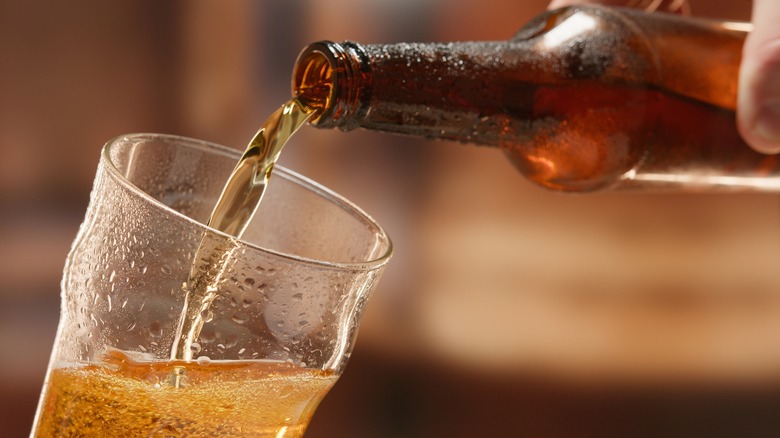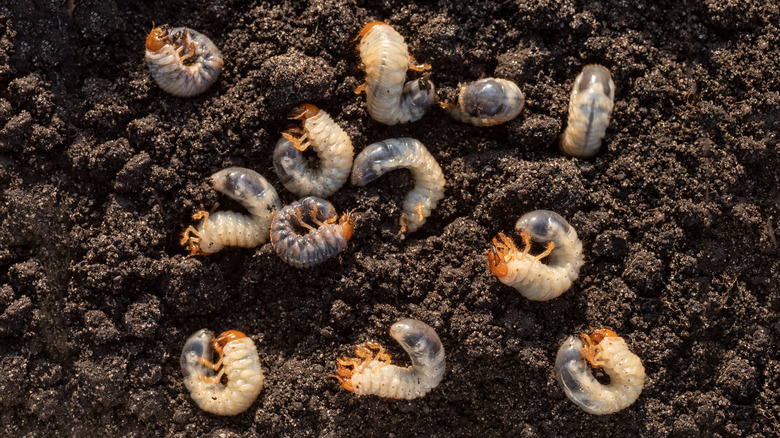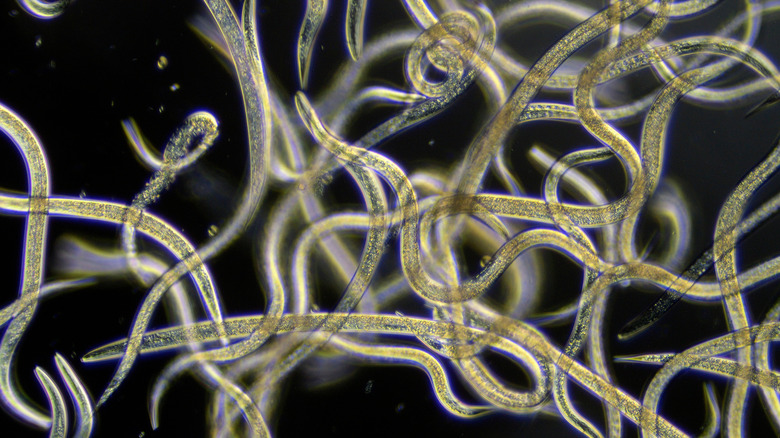Is Beer Really A Solution For A Grub-Infested Lawn? Here's What We Know
Grubs are small, white, worm-like creatures that live just below the surface of the ground and eat away at the roots of plants. These pests are the larvae of various species of beetles, and can cause serious damage to lawns, including killing your grass and leaving it loose from the ground. Some online sources claim that beer can attract and kill grubs. The theory is that by digging a hole in the dirt and placing a small container of beer in it, you can attract grubs and then they will fall into the liquid and die. Unfortunately, this is not, in fact, one of the best ways to get rid of grub worms.
Because grubs live in the soil, setting a trap like this may not be able to catch them. Additionally, there seems to be no scientific evidence that grubs are attracted to beer or that the alcohol will certainly kill them. Because of this, beer is not really a solution for grub infestations. Rather than potentially wasting your time with this hack, you might try more reliable and proven methods to banish pesky grubs from your lawn.
Why beer isn't the best choice for a grub-infested lawn
Using beer to kill the grubs destroying your grass might seem like an easy and inexpensive pest control solution, but these insects are likely too far down in the soil for a dug-in trap to work. While an abundance of beer may be able to kill bugs because it contains alcohol, it would be extremely difficult to reach the grubs beneath your lawn. You would need to dump tons of this alcohol onto the soil, which could further damage your yard, produce an awful smell in the sun, and still probably won't take care of a grub infestation. Though some blogs state that beer traps can eliminate a few grubs, several lawn care companies explain online that this control method is a total myth. Attempting to kill a large grub infestation with beer could end up being expensive and harmful.
Other solutions for a grub-infested lawn
One way to start controlling grubs without insecticides is with natural predators. Since birds like to snack on grubs, you might try to lure songbirds to your yard to get rid of these pesky worms. Alternatively, you might try introducing some parasitic nematodes. Heterorhabditis bacteriophora nematodes are known to go after grubs, but this will only work if the environmental conditions support nematodes. If ground temperatures are below 50 degrees Fahrenheit, the nematodes won't be able to do their job. Steinernema nematodes could also potentially help, but they might not work as well as the other type. Make sure to follow the proper storage directions that come with parasitic nematodes.
Grubs are also greatly affected by a lack of water. Withholding water from your lawn in the late summer will help to kill off grub populations, but it could also turn your grass brown. While a milky spore disease (Bacillus popilliae) is sometimes recommended for killing the larvae of Japanese beetles, it has no effect on other types of grubs and is not always the most reliable method. In severe cases, you may consider contacting a professional pest control agency to help with your grub problems.


